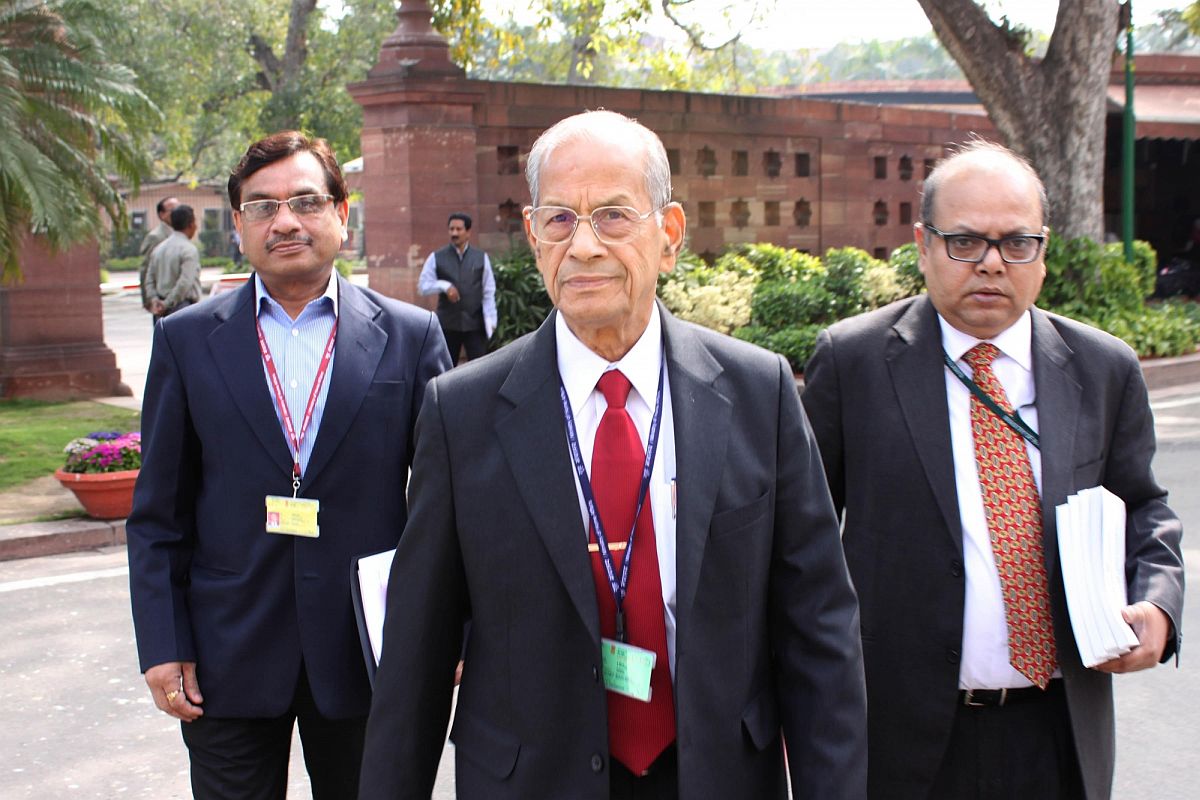Kejriwal refutes speculations of running for Rajya Sabha after Punjab bypoll victory
His statement comes after party MP Sanjeev Arora clinched victory in Ludhiana West assembly seat in Punjab.
Earlier, Sreedharan had written to Prime Minister Narendra Modi requesting him not to agree to the Delhi government’s proposal of free rides for women.
SNS | New Delhi | June 22, 2019 12:33 pm

E Sreedharan (File Photo: IANS)
Former Delhi Metro Rail Corporation (DMRC) Chairman E Sreedharan has alleged that the Delhi government’s proposal of free travel for women is an “election gimmick” and urged the Kejriwal dispensation to “not destroy” the efficient and successful public transport system for electoral gains.
In a letter to Deputy Chief Minister Manish Sisodia, the former DMRC chief, popularly known as the ‘Metro man’, also said free travel will “worsen overcrowding” and “lead to mishaps”.
Advertisement
Sisodia had reportedly written to Sreedharan telling him that the Delhi Metro was already running in losses. It’s carrying capacity is 40 lakh passengers every day but presently it is carrying only 25 lakh, he had said.
Advertisement
Claiming that the proposal of free travel for women will be beneficial for Delhi Metro, Sisodia said, “its ridership will increase and fares will come down. If the Delhi government pays the fare of women commuters, Delhi Metro should be happy with it.”
Hitting back at the former DMRC chief, AAP leader Atishi said the party is surprised that a respected person like him has written a “political letter” and the AAP feels like BJP is using Sreedharan’s shoulder for conveying its message.
“Sreedharan ji has said that the move would be a financial burden on DMRC. I want to ask when last year, the Centre proposed to make metro rides free for senior citizens and students, why did not he raise any objection?” she said.
Sreedharan’s letter to Sisodia, dated June 20, comes days after the AAP leader wrote to the former, expressing “surprise” over his opposition to the AAP government’s scheme.
“I am not opposing Delhi government’s proposal to bear the cost of free travel for women but objecting only to the concept of free travel in a metro. If we allow free travel for women, what about more deserving categories such as students, disabled persons and senior citizens?” he said in the letter.
Sreedharan, who is also the principal adviser to Delhi Metro Rail Corporation (DMRC), said, “no metro” in the world has extended free travel facility to women exclusively.
He wrote that any compensation paid to DMRC by the Delhi government, is tax-payers’ money and a taxpayer has the right to question why only women are being given free travel.
“Everybody knows this is an election gimmick to win votes of women in the next Assembly election,” Sreedharan alleged in the letter.
In his letter, he also pointed to the liability faced by the Delhi Metro and the implications the proposed scheme might have on it.
“My objection is to the very idea of allowing free travel to any section of the society, till such time loans taken by the DMRC (now outstanding about Rs 35,000 crore) is serviced and paid back,” he wrote.
“I would, therefore, appeal to your government not to destroy an efficient and successful public transport system such as Delhi Metro for electoral gains,” Sreedharan said.
Earlier, Sreedharan had written to Prime Minister Narendra Modi requesting him not to agree to the Delhi government’s proposal of free rides for women in the Metro.
Sreedharan said such a decision would set an alarming precedent for all Metros in the countries.
He said, “If ladies are to be given free travel concession in Delhi Metro, it would set an alarming precedent for all other Metros in the country.”
He further said that such a concession would lead to immediate demands from “more deserving sections like students, handicapped, senior citizens and others”.
“The amount involved is about 1,000 crore per annum today. This will go on increasing as the metro network expands and with further fare hikes on the metro succeeding governments of Delhi will not be able to pay this subsidy,” he said.
Sreedharan further said that Delhi Metro is a joint venture of Government of India and Government of Delhi and that one shareholder cannot take a unilateral decision for one section of the community and push Delhi Metro into inefficiency and bankruptcy.
Calling such concessions as a “disease”, Sreedharan wrote that it will spread fast to all other metros in the country making them dependent on state governments for subsidies.
Advertisement
His statement comes after party MP Sanjeev Arora clinched victory in Ludhiana West assembly seat in Punjab.
Yadav alleged that Sisodia, who spent several months behind the bars in connection with the liquor scam, was trying to prove his innocence in the classroom construction scam too by giving misleading replies to ED.
A hoax snake sighting in a Delhi Metro's women's coach led to chaos as passengers in panic climbed onto seats and looked to escape to other coaches for safety.
Advertisement
